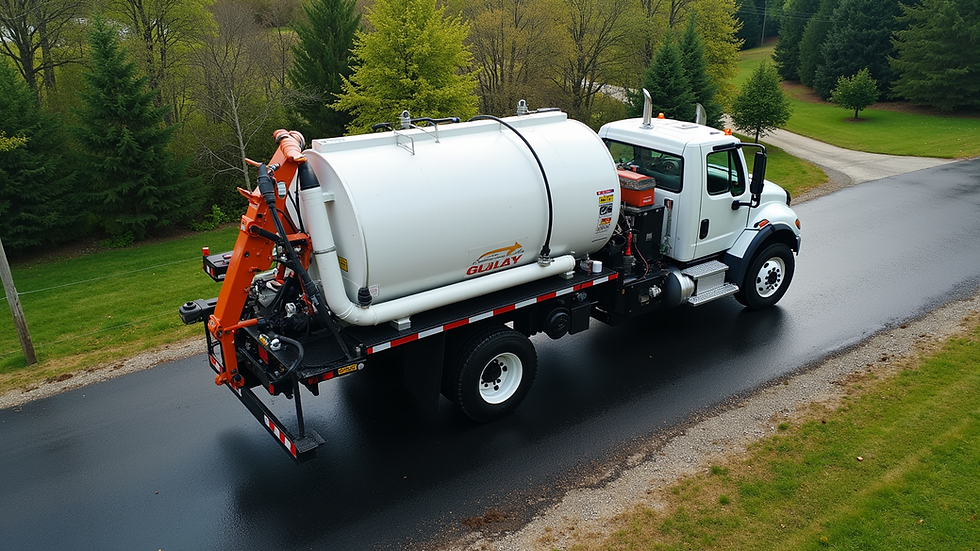Prevent Septic Tank Emergencies with Regular Pumping
- Mark Preston
- Sep 29, 2025
- 3 min read
Septic systems are essential for managing household wastewater in many areas. However, they require proper care to function efficiently and avoid costly emergencies. One of the most effective ways to prevent septic tank problems is through regular septic system maintenance. This proactive approach helps keep your system running smoothly, protects your property, and saves you money in the long run.
Why Septic System Maintenance is Crucial
Maintaining your septic system is not just about avoiding unpleasant odors or backups. It is about protecting your home’s plumbing, the environment, and your investment. Over time, solids accumulate in the septic tank, which can clog pipes and damage the drain field if not removed. Neglecting maintenance can lead to:
Sewage backups inside your home
Contaminated groundwater and soil
Expensive repairs or full system replacement
Health hazards from exposure to untreated waste
Regular inspections and upkeep ensure that your septic system operates efficiently and prevents these issues before they escalate.

Key Steps in Septic System Maintenance
Proper septic system maintenance involves several important steps that homeowners should follow:
Regular Inspections
Schedule professional inspections every 1 to 3 years. Inspectors check for leaks, sludge levels, and overall system health.
Septic Tank Pumping
Removing accumulated solids from the tank is essential. This process prevents sludge from overflowing into the drain field.
Water Usage Management
Excessive water use can overload the system. Fix leaks and use water-efficient appliances to reduce strain.
Proper Waste Disposal
Avoid flushing non-biodegradable items, grease, or chemicals that can harm the system.
Protecting the Drain Field
Keep heavy vehicles and structures off the drain field to prevent soil compaction and damage.
By following these steps, you can extend the life of your septic system and avoid costly repairs.

How Often Should a Septic Tank Be Pumped Out?
The frequency of septic tank pumping depends on several factors, including tank size, household size, and water usage. Generally, septic tanks should be pumped every 3 to 5 years. However, some situations may require more frequent pumping:
Larger families producing more wastewater
Use of garbage disposals, which increase solids in the tank
Systems with smaller tanks or older components
Regular pumping removes sludge and scum buildup, preventing blockages and system failure. To determine the best schedule for your home, consult a septic professional who can assess your system’s condition.

Signs You Need Septic System Maintenance Immediately
Recognizing early warning signs can save you from a septic emergency. Watch for these indicators:
Slow drains or frequent backups in sinks, toilets, or showers
Unpleasant odors around the septic tank or drain field
Standing water or soggy areas near the drain field
Lush, green grass over the drain field even during dry weather
Gurgling sounds in plumbing fixtures
If you notice any of these signs, schedule a professional inspection and consider septic tank pumping to address the problem promptly.
Tips for Extending the Life of Your Septic System
Beyond regular maintenance, you can take additional steps to protect your septic system:
Limit water use by spreading out laundry loads and fixing leaks quickly.
Avoid harsh chemicals that kill beneficial bacteria in the tank.
Use septic-safe products for cleaning and personal care.
Keep trees and shrubs away from the drain field to prevent root intrusion.
Educate household members about what should and should not be flushed or drained.
Implementing these practices helps maintain a healthy septic system and reduces the risk of emergencies.
Planning for Long-Term Septic System Health
A well-maintained septic system can last for decades. Planning for its long-term health involves:
Keeping detailed records of inspections, pumping, and repairs
Budgeting for regular maintenance costs
Consulting professionals for upgrades or replacements when needed
Staying informed about local regulations and best practices
By taking a proactive approach, you ensure your septic system remains reliable and efficient for years to come.

Regular septic system maintenance is the key to preventing emergencies and costly repairs. By scheduling timely inspections, practicing responsible water use, and arranging for professional septic tank pumping, you protect your home and environment. Stay vigilant for warning signs and follow expert recommendations to keep your septic system in top condition.




Comments